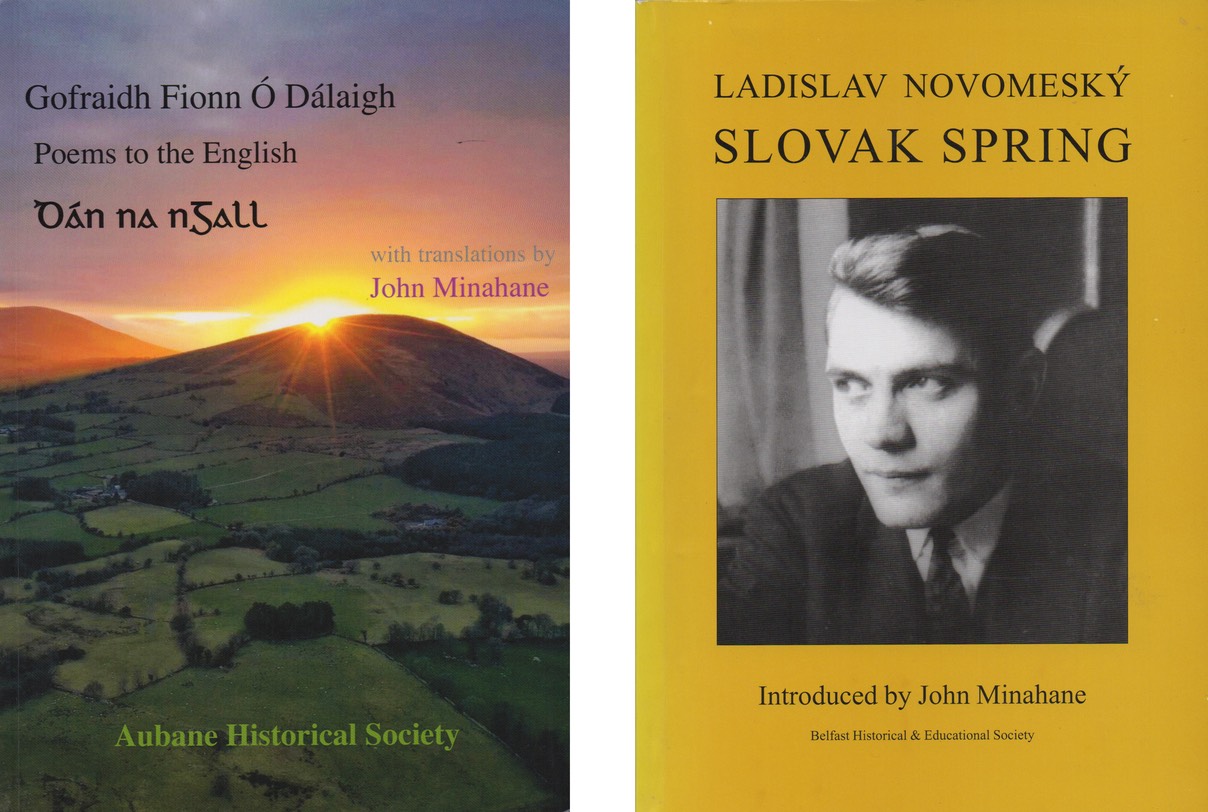INTRODUCTION
John Minahane gave his talk Why Heidegger is interesting in May 2014 to a group of people in Belfast associated with the publishing house Athol Books. Athol Books was originally established by the British and Irish Communist Organisation, well known for its willingness to think 'outside the box' of conventional left wing assumptions. Both John and I were members of the B&ICO back in the 1970s and we find that our old friends are still as intellectually adventurous as ever. After giving his talk John was offered the chance to edit a new journal - The Heidegger Review - a project that fitted well with the series Athol Books had already produced on Irish-German relations.
The Heidegger Review was not intended as a journal of academic research on Heidegger - anything but! Rather it aimed at discussing the issues raised by, or related to, what Heidegger was doing. Minahane himself wrote on the relationship between poetry and philosophy among Heidegger's beloved Greeks and also on the poetry of the First World War, both on poets initially enthusiastic for war (Rilke for example) and those who were opposed to it. He included his own translations of the Bloody Sonnets of the Slovak poet Pavol Orszách Hviezdoslav, one of the few poets to write against the war right from the start. I wrote about the political-philosophical outlook of Alexander Dugin, only going into his views on Heidegger in the third issue of the journal. (1) Brendan Clifford wrote on the conflicted relationship between the British (and, with regard to Tom Kettle and Conor Cruise O'Brien, Irish) intelligentsia and Nietzsche; Cathy Winch on Simone Weil, with particular reference to her views on technology. Philip O'Connor wrote an important essay on the political acrobatics of Der Spiegel.
(1) My contributions can be found elsewhere on the present website.
Minahane himself is well known as a writer on Gaelic literature, in particular arguing that, once placed in their historical context, poems other writers have dismissed as mere technical exercises in fact have a rich intellectual and political content. He has translated the seventeenth century poet Geoffrey O'Donoghue and the fourteenth century Gofraidh Fionn Ó Dálaigh, as well as the 'Argument defending the right of the Kingdom of Ireland' by Conor O'Mahony, written in 1645 in the context of the English Civil War and its devastating consequences in Ireland. Living and working in Slovakia, he has published translations of a number of Slovak poets, including, in addition to Hviezdoslav, Ladislav Novomesk´y, Milan Rúfus, and, most recently, Janko Král'.
